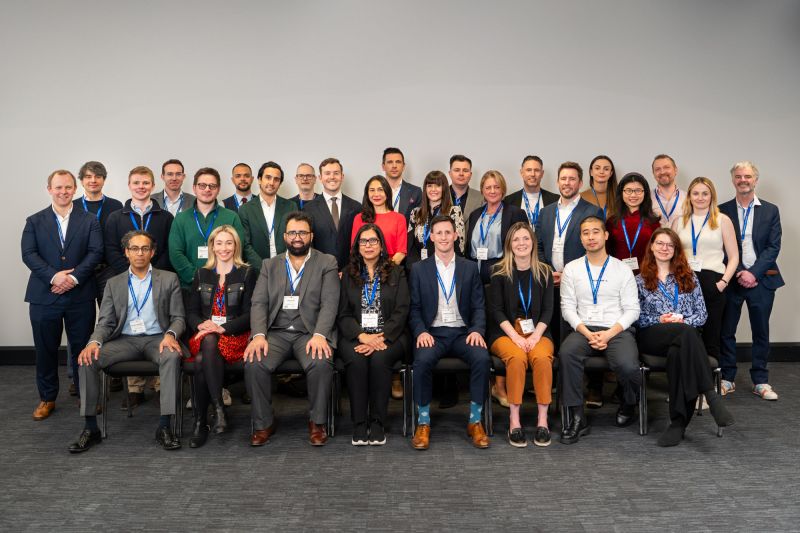Working with Boehringer Ingelheim, and the University of Plymouth, the AHSN Network has launched a new evidence-based guide to support digital health innovators and leaders to conduct meaningful patient and public involvement and engagement.
The new user-friendly guide, entitled ‘How to involve and engage patients in digital health tech innovation’ has combined the results of a systematic literature review, advisory panels and multi-stakeholder input to produce four clear principles (ENACT) around patient and public involvement and engagement (PPIE).
The principles make it clear how to involve patients in product innovation and make recommendations around critical issues such as data privacy, intellectual property, inclusivity, reimbursement, useability, and recruitment of patients for health technology entrepreneurs.
The guide not only helps with the initial digital development but also puts in place processes to support ongoing product improvement. By adopting the core principles, digital innovators can continually improve their product, better communicate its value to the system, and ultimately improve patient trust in the technologies created.
Commenting on the guide, Matt Whitty, Chief Executive of the Accelerated Access Collaborative and Director of Innovation, Research and Life Sciences, NHS England & NHS Improvement said: “Through research and innovation, we can improve patient outcomes and reduce health inequalities. Patient-centred digital technology is an increasingly important aspect of a dynamic and sustainable health system. By ensuring patients are involved in developing these digital technologies we will create solutions that best meet their needs. I hope this guide will help support innovative digital technology development across our health service.”
Richard Stubbs, Vice-Chair of the AHSN Network summarises why the guide is so valuable: “To drive true change in our healthcare system, a patient-centred approach must be at the heart. The guide makes key recommendations in this area. Simple steps such as building relationships with community leaders and influencers can help innovators engage with patients and families in under-represented demographics. I hope this guide can support inclusive innovation and make a positive impact in the digital transformation of the UK healthcare system.”
Uday Bose, Country Managing Director at Boehringer Ingelheim UK & Ireland, explains the importance of this guide: “Critical to the success of any efforts we undertake for patients is to engage and actively involve them from the start. Modern healthcare systems cannot deal with any wasted time or effort, so we hope that this guide helps the system to create patient-centric innovations in an efficient manner.”
The robust academic foundation for the guide was provided by the University of Plymouth’s research ‘Meaningful patient and public involvement in digital health innovation, implementation and evaluation: a systematic review’ which was recently published in the international journal Health Expectations’. The review was followed up by a Delphi study to consensually evolve the principles.
Professor Arunangsu Chatterjee, Dean of Digital Transformation, University of Leeds and Visiting Professor of Digital Health & Education at the University of Plymouth, said, “Digital health innovation is still fairly new territory and there is a need for clarity to ensure development that is inclusive of patients. Bringing together the academic rigour and expertise of organisations like ours, the commercial expertise of Boehringer Ingelheim and the community network of the AHSN has accelerated positive change, and the development of this resource has been a true partnership.”
The guide can be accessed via Boehringer Ingelheim’s website and will be distributed across the AHSN Network to support innovation across the NHS, helping to ensure patient voices are built into the digital reform of healthcare and is available for download here.

The need for fast-paced innovation in healthcare is widely acknowledged. And ensuring that healthcare innovation is shaped by the people it serves remains a pressing priority – one made all the more evident by the growing emphasis on health equity in the 10 Year Health Plan. Patient voices are often cited as central to healthcare [...]

The NHS Innovation Accelerator (NIA) has revealed its 2025 cohort of Fellows. As the NIA celebrates a decade of helping to drive innovation in the NHS, this year’s cohort aligns with the Government’s three priorities: supporting the transition from analogue to digital, sickness to prevention and hospital to home. The 28 new Fellows will benefit [...]

A new guide aimed at helping primary care organisations and integrated care boards understand and address problematic polypharmacy has been launched by the Health Innovation Network as part of its national Polypharmacy Programme. Developed in response to a clear need identified by primary care and prescribing colleagues, this essential resource provides practical, evidence-based strategies to [...]








